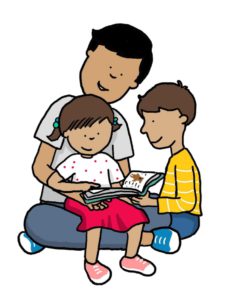 Syntax is part of grammar. It focuses on the order and structure of words and phrases to create sentences. In English, sentences follow a basic subject-verb-object format.
Syntax is part of grammar. It focuses on the order and structure of words and phrases to create sentences. In English, sentences follow a basic subject-verb-object format.
Typical language learners start to use syntax (at least in a simple form) when they progress beyond the one-word stage, usually at around two years of age.
A child with difficulties in grammar and syntax may:
- show inconsistent or incorrect word order when speaking
- show limited understanding or use a limited number of grammatical markers (e.g. ‘–ing’, ‘a/the’, possessive ‘s’, ‘be’ verbs)
- have difficulty understanding and using past, present and future verb tenses
- struggle with story retell tasks
It is common for children who have language difficulties or a Developmental Language Disorder (DLD) to have difficulties with syntax and grammar – these difficulties can impact both a child’s understanding and use of language, and later literacy and academic success.
Repeated storybook reading together with the use of cloze procedures, expansions and models has been shown to be one of the ways to improved complex syntax. An example of an adult responding with an expansion and cloze procedure is:|
Child: He happy.
Adult: He is happy because he ___
Child: He got a birthday present.
